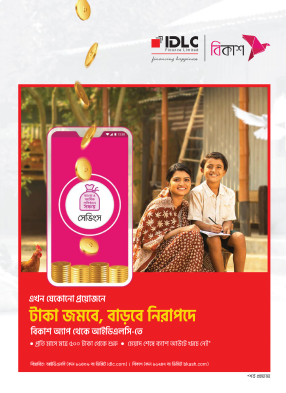- info@ficci.org.bd
- |
- +880248814801, +880248814802
- Contact Us
- |
- Become a Member
- |
- |
- |
- |
- |

Life insurance is a fundamental component of financial services in any country's economic planning. Yet, in Bangladesh, a large portion of the population still remains outside insurance coverage. As a result, a single accident or illness can lead to financial disaster for individuals and families. This, in turn, increases the government’s burden on social protection. The life insurance sector in Bangladesh can make a significant contribution to the country’s economy if it were given the chance to grow under business-friendly policies and initiatives.
The growth of the life insurance sector depends on people’s participation. The more people are covered by life insurance, the more encouraged companies will be to invest, innovate, bring in new products, and foster a healthy competitive market. In the 2025-26 national budget, we hope to see policy measures that enable insurance companies to pursue focused and long-term business plans.
MetLife has been providing individual and institutional life insurance services in Bangladesh since 1952. As one of the largest long-term foreign investors in the country, we currently serve nearly 1 million individuals and 900 institutions with life and health insurance, and we’ve created employment for more than 13,000 agents. MetLife is also one of the largest investors in government treasury bonds and a top taxpayer in Bangladesh.
Based on our 70+ years of experience in contributions to the financial sector, we would like to propose three essential policy reforms in the upcoming budget to help the insurance sector reach its full potential.

1. Make Life Insurance More Customer-Friendly
Currently, life insurance maturity proceeds are subject to Tax Deducted at Source, or TDS of 5% to 7.5%. This rate should be brought down to zero. Life insurance is a long-term financial product—people deposit money year after year for security and future certainty. However, when they finally receive the maturity benefit, a portion is deducted as TDS, which disrupts their financial plans. This discourages people from choosing insurance and deters potential customers.
Removing this TDS will make life insurance more attractive and bring many new customers into the fold. It won’t reduce government revenue because taxpayers usually adjust this amount in their annual tax returns. In fact, eliminating TDS could boost the sector’s popularity, ultimately contributing positively to the economy and increasing total tax revenue in the long run.
2. Make the Insurance Profession More Attractive for Agents
Currently, insurance agents are subject to TDS on all commission earnings, even though annual income up to BDT 350,000 is tax-exempted for individuals. There should be an exemption threshold for agent commissions as well.
Willingness in purchasing insurance is still relatively low in Bangladesh, which affects agents’ incomes. Most agents rely solely on commission from policy sales, and taxing their limited income reduces their take-home pay. For many, this creates difficulty in covering personal and household expenses. Waiving the TDS on lower-income agent commissions would provide real support for this group.
With over 2.6 million officially unemployed people in Bangladesh (and likely many more in reality), removing this tax could attract more individuals to become agents. This would promote human resource development, generate employment, and expand insurance coverage in the long run.

MetLife Bangladesh recognises top agency forces
3. Make the Insurance Sector More Attractive for Investors
Reducing the corporate tax rate for insurance companies would ensure long-term growth and economic stability. The current rate stands at 40%, which is a major barrier. This should be brought down to 30%.
The insurance sector helps reduce financial risk for individuals and families, lowering the government’s need to spend on social protection. A reduced tax rate would allow companies to expand operations and strengthen their role in sustainable development and social security. A competitive tax structure also encourages companies to improve efficiency and capacity.
Our neighboring and competitor countries have more favorable tax rates for the insurance sector, for example, Vietnam (20%), Sri Lanka (30%), Saudi Arabia (20%), and Nepal (25%). The insurance sector in Bangladesh has been facing a contraction for years. Lowering the tax rate would revitalize it and, in the long run, lead to higher revenue collection.
 The development of the life insurance sector is not just about the growth of one industry – it is deeply linked to the country’s overall economic stability, social protection, and employment generation.
The development of the life insurance sector is not just about the growth of one industry – it is deeply linked to the country’s overall economic stability, social protection, and employment generation.
If the upcoming budget includes practical and business-friendly policies, the insurance sector will gain new momentum. Millions of people across the country will gain long-term financial security, and the government will gain a strong, sustainable source of revenue.
Now is the time to give this promising sector the attention it truly deserves.





